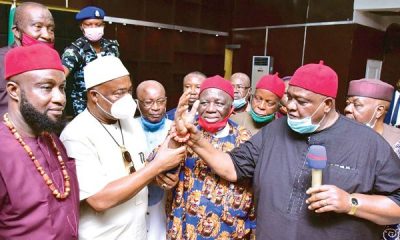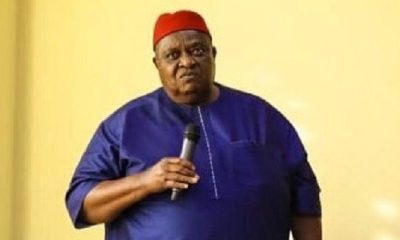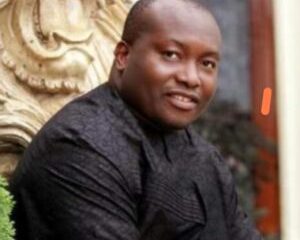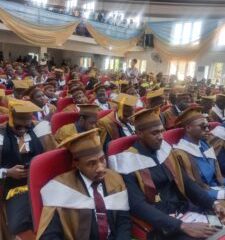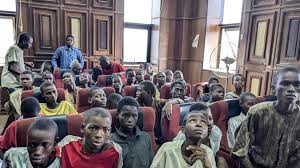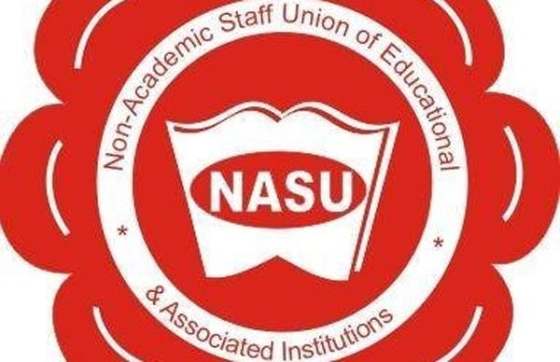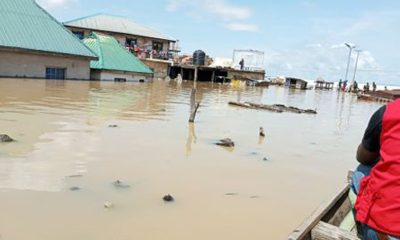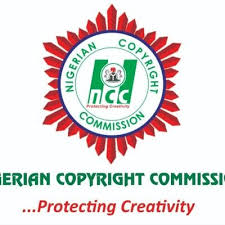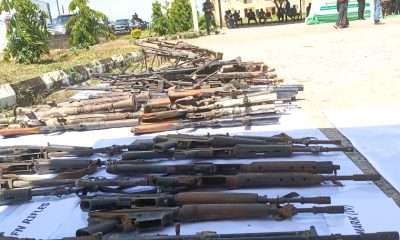OPINION
Ndigbo, 2023 and the ‘Gospel’ According to Hakeem
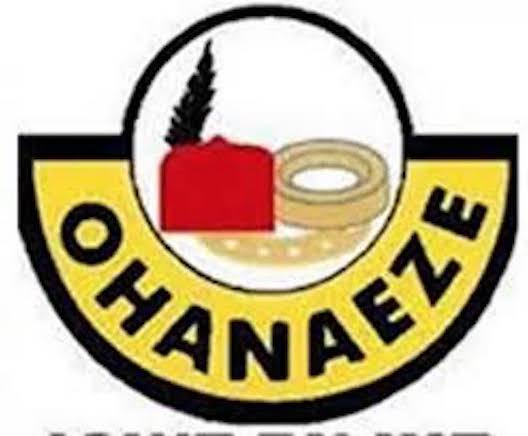
By Osmund Agbo
As I sat by the corner, fiddling with my phone while patiently awaiting Madam Yemisi’s ambrosia, this tall, ebony hunk of a guy waltzed in. He quickly surveyed the place and beelined, easing his modest frame into the chair close by me. Even as a guy, it was not lost on me that this fellow was divinely built to impress and I concluded that he is the type who potentially could charm worldly women into denying their husbands or boyfriends, just for a fling.
Hakeem is probably in his early thirties, personable and gregarious. You could tell he is from corporate America and most likely holding an influential position somewhere in town.
My love for Nigerian cuisine has led me to all kinds of culinary adventures and that was how I chanced upon this gem lost in the hustle of downtown Houston.“Hello”, I greeted, flashing a smile. “Osmund”.
“Oh. Hey Osmund. Hakeem here. How you dey?”, he said smiling back.
“Ibo, right?”
I answered in the affirmative, but not before letting him know that the correct word is Igbo.
Before long, we launched into a long session, interrogating the promises and realities of Nigeria. We bemoaned the economy in recession, condemned the incessant killings and banditry in the North-East, and cringed at the shooting of the EndSARS protesters at Lekki gate. Of course, we had to dabble into the politics of 2023. It turned out that Hakeem is the scion of a famous political family in one of the South-Western states and his late father was a federal minister in the Second Republic.
He believes that the time is long overdue for a Nigerian president of Igbo extraction but worried that the activities of the Indegenous People of Biafra (IPOB) is casting a dark cloud over it. “You can’t be seen fighting for secession and at the same time wanting to be the president of Nigeria”, Hakeem emphasized. He would not be the first to make that point.
As Nigerians begin to look beyond the train wreck that is the Buhari era, the question of sending an Igbo person to Aso Rock has become one of the hottest topics dominating many news cycles. The latest fad in our political commentary is to offer some sort of advice to Ndigbo, ranging from cautionary tales to reeling off a whole list of dos and don’ts. Some have even suggested that Ndigbo should bow their heads in supplication, like good servants, hoping to get noticed by the benevolent spirits. In a different take, IPOB and like-minded groups are fully convinced that belligerent posturing seems to be the only language the Hausa-Fulani oligarchs understand.
Of course, if one should go searching for honey, you expect to be stung by bees. What is rather bizarre is the suggestion that whatever sin IPOB is accused of committing, somehow translates to an Igbo transgression. IPOB, for sure, commands a considerable following, especially among disgruntled Igbo youths who are appalled by the fact of being confined to second class status in theirown country. That said, there has never been a referendum to determine if the demands of the separatist group reflect the wishes of Ndigbo. The people are incurably republican and many would shudder at the mention of IPOB speaking for them.
The last time I checked, the Yorubas were never found wanting just because the Oodua Peoples Congress (OPC) demanded an Oduduwa Republic during the early days of the June 12 struggle. The same goes for the Niger Deltans, when in February 23, 1966, Adaka Boro and his Volunteer Force declared a Niger Delta Republic. At every juncture in our nation’s history, there has always been agitation for secession by one group or another. In fact, prior to independence, Northern Nigeria was the first to dangle the carrot of secession from the Nigerian colony. That was why Zik addressed the National Council of Nigeria and the Cameroons (NCNC) caucus on May 12, 1953, giving the reason why they needed to stick with the union. The region was richly rewarded and the North received a great deal of concession thereafter.
Separatist agitation is a global phenomenon and not unusual in multi-ethnic, culturally pluralistic societies.
Another point often made is the noisy ebullience and superciliousness of the people, which tend to unsettle other ethnic nationalities. Granted that those are hardly sought after virtues, but truth be told, there is something in every culture or ethnic group which attracts and others that repel. On a flip side, some of those traits also turn out to be the fuel that powers the never-give-up and can-do spirit of Ndigbo. That said, Achebe in his book, The Trouble With Nigeria advised that “Igbos must learn less abrasiveness, more shrewdness and tact and a willingness to grant the validity of less boisterous values”.
Hakeem had theorized that what some see as the Igbo problem in Nigeria is a myth borne out of ignorance. Ignorance naturally breeds fear, since there is a tendency to be apprehensive of what we don’t understand. He observed that very few Nigerians of other ethnicity have had the chance to live in or even visited Igboland to experience the people first hand in their homeland and outside the sphere of business engagements. He narrated the story of how many years back, he was posted to Imo State for his National Youth Service. With all the dreadful things they heard about the place, his mum was hell bent on getting him reassigned to somewhere closer home. Hakeem, though nervous at the time, however insisted on going for the ride, just out of sheer curiosity. After a feisty exchange, with lots of going back and forth, his mother reluctantly yielded. Hakeem would later confess that the one year he spent in Nekede, a small town near Owerri, was the best time of his life. By his account, Igbos are the most under-appreciated and hospitable group of people in the planet.
It is an undisputed fact that Igbos, with their nomadic business lifestyle, tend to travel far and wide, settling down and setting up businesses everywhere, in a way that speaks to the national spirit desperately needed in Nigeria. More than others, Ndigbo are also more likely to embrace cultural identities different from theirs, be it in clothing, food or learning indigenous languages of their host city, sometimes even to the detriment of their native language. It’s not uncommon to find an Igbo born in Lagos or Kano who is fluent in Yoruba or Hausa but can’t even complete a full sentence in Igbo. Cosmopolitanism just happen to be their second nature.
The path of politics is strewn with betrayals and head spinning intrigues and Ndigbo should not be naïve to expect that the presidency will be handed down to them on a platter. The people have to first lay a solid groundwork, making a commitment to move past unbridled individualism, eschew unhealthy rivalry and play a politics of the collective. If we are serious about this project, our many semi-literate political jobbers whose claim to fame is only through thuggery and pay-for-vote scheme must self-isolate. Ndigbo would have to face up to the adversaries from within who are ever willing to mortgage the group interest in a whim.
Like Chidi Amuta prayed in his powerful essay titled, “2023: Igbos and the Politics of Moral Consequence”, let’s hope that our national history has a moral arc that will bend in the direction of justice and that such hope will triumph over our past experiences. Ndigbo, on their part, should realize that politics is a serious business. In business we are told, you don’t get what you deserve, you simply get what you negotiate.
As we were cleaning out the appetizers that consisted of chicken suya with roasted corn, Madam Yemisi emerged with a big bowl of smoky hot ewedu and gbegiri. I carefully surveyed the plate, making sure that all the “side attractions” were well represented and then quickly descended on it like a wounded Tiger. Hakeem looked at me and smiled.
“Ounje ajeye o”, I greeted.
“Yoo gba ibi re”, he responded, pleasantly surprised.
Yorubas always seem to have the perfect pitch for every occasion. I am guessing you may have figured that Hakeem is my new best friend.
OPINION
Rivers Crisis: How Fubara Can Resolve Stalemate without Firing Shot
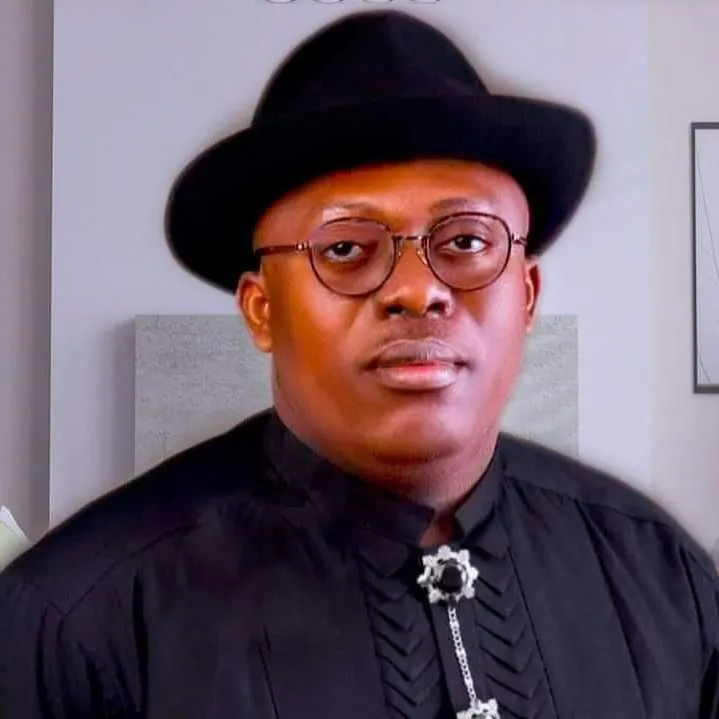
By Ehichioya Ezomon
Rivers State Governor Siminalayi Fubara’s made the world to believe that his predecessor and Minister of the Federal Capital Territory (FCT), Abuja, Chief Nyesom Wike, is the architect and purveyor of the political crisis in the state. He’s used every opportune moment to drum this narrative for the consumption of a sympathetic public.
Fubara struck a similar cord lately, at the heat of the contentious and bloody October 5, 2024, local government council election that’s resisted and boycotted by the Wike faction of the ruling Peoples Democratic Party (PDP), and the opposition All Progressives Congress (APC) in the state.
Appearing on a Channels Television’s ‘Politics Today’ on Monday, October 7, Fubara advised Wike to let go of his grip on the Rivers polity, “for the sake of the good people of Rivers State, and the love that you (Wike) have always professed for the state.
”On the alleged breach of a “gentleman’s agreement” he’d entered into with Wike to secure his “anointing and endorsement” as the PDP candidate for the March 18, 2023, governorship, Fubara said he’d kept all “understanding” with Wike, and lounged into his talking point of how he’d repeatedly knelt down for Wike for peace to reign in Rivers.
“There is nothing I have not done on this earth for peace to reign. I can tell you the number of times I have knelt to beg (Wike) that, let’s allow this issue to go. I have done everything,” Fubara said, even as continuously states, “I will not worship any human being but God” – indicating alleged Wike’s demand he (Fubara) should worship him, a charge Wike’s denied.
Fubara says he appreciates the fact that Wike played a pivotal role in his governorship, but that it’s God that used Wike as a vessel to fulfil His purpose, and so, only God deserves his (Fubara’s) worship, and not any human. He echoed this sentiment on May 16, 2024, during the inauguration of Egbeda internal roads, in Emohua local government area of Rivers.
Fubara said: “God can do anything He wants to do when He wants to do it. It is only for us to realise that God will not come down from Heaven but will pass through one man or woman to achieve His purpose. So, for that reason, when we act, we act as humans; human vessels that God has used, and not seeing yourself as God.
“I want to say this clearly, that we appreciate the role our leaders, most especially the immediate past governor (Wike) played. But that is not enough for me to worship a human being. I can’t do that.”
However, on May 11, 2024, in Ogu-Bolo, Rivers State, at a grand reception in honour of Chief George Thompson Sekibo for his 20 years of public service, Wike said he isn’t God, and as such, had never demanded that anybody should worship him. “Nobody can worship man. All of us believe that it is only God we will worship. (But) as politicians, we appreciate people who have helped us,” Wike said.
Asked on the Channels TV’s programme what his message to Wike would be if they met, Fubara said: “I’ll tell him that it has gotten to a point where he needs to let go. We need peace in this state. You don’t necessarily need to win all the fights; at times, you just let go for the sake of the good people of Rivers State and the love that you have always professed for the state.”
Noting that “election periods are over and it’s time for governance,” Fubara urged Wike to give peace a chance. “What I am appealing is: Everyone should sheathe their swords. Even to the Minister, my oga (my boss), there is no need to destroy this state. When it comes to the election period, you can fight and do whatever but now is the time for governance. We need all the support,” Fubara said.
“He (Wike) once ruled this state and the state was an envy of every other state. Another person (Fubara) is there now, (and) what we need is the support. After four years or eight years, who knows? I will also leave and someone else will take over. That should be the spirit. Fubara will leave tomorrow. Who knows who is going to come? It might be through him or another person but we need to secure the state.”
But does Fubara really desire peace in Rivers State? It doesn’t seem so! Otherwise, he should quit the baiting, the insulting, the denigrating, the rhetoric, and the labelling of Wike as “the enemy of Rivers State” – all done by Fubara to curry sympathy and secure the approval of the gaming public. You can’t be talking peace and at the same time be fanning the embers of war!
Fubara can stoop to conquer by embracing genuine reconciliation with Wike. For instance, what stops the governor from telling those beating the drums of war for him that, “Enough is enough, I’m going to make peace with Wike for the sake of Rivers State and its people?”
This may not work due to the personal and partisan differences among the former governors and the incumbent. For example, Odili aligns with Fubara and alienates Amaechi and Wike; Amaechi’s sours on Odili, Wike and Fubara; Wike’s beef with Odili, Amaechi and Fubara; and Fubara and Wike are on a war path.
In such a scenario, who’ll call for the “sit-at-table” peace meeting? President Bola Tinubu would’ve fitted the bill, but he literally burnt his fingers the last time he attempted a truce between Fubara and Wike. The agreement, witnessed and signed by Odili, Fubara and Wike, among others, collapsed almost immediately it’s hashed out, with Fubara, who initially said the agreement “wasn’t a death sentence,” turning round to lebel it as political and not constitutional.
So, here’s a simple approach that’ll not only put Wike on his back foot, and induce him to return to the basic, but also push him to his wit’s end! Fubara should select some of the elders and leaders of the divide in Rivers, including the former governors, and inform Wike that he’s coming with a delegation on an agreed date, to fully reconcile with him. The ball will then be centrally placed in Wike’s court to either accept or refuse Fubara’s expressed desire for armistice between them.
Fubara’s offer of peace should be widely publicised in the media – different from his claimed behind-the-scences kneeling down to beg Wike – for maximum pressure and effect on Wike, and it’ll be well and good if the overture comes through! If doesn’t – in the event that Wike declines the invitation to reconcile, his current and intended political antics will be exposed as being the real masquerade behind the political turmoil in Rivers State, and Fubara will be vindicated at last.
All told, the “feat” Fubara achieved with the conduct of the local government council election hasn’t guaranteed a win over the war with Wike. Instead, he’s merely won the battle – a pyrrhic victory of some sorts – while the war remains. It’s still a dicey situation in which “a child doesn’t know when sleep takes food from their mouth” – depicting the futility of the “clever person” attempting to hold on to something that’s slipping away from them.
Fubara strives strenuously to exonerate himself from the crisis he’s helped engineer and sustain for a year now. That Rivers is going through the grinding mill is because of the governor’s failure to use tact and diplomacy in handling and dealing with Wike’s alleged overbearing influence on his government.
Agreed that Wike – amid strong opposition and resistance from even political leaders from Fubara’s homestead – worked on the recommendation of some Rivers leaders, and took Fubara from the civil service to the Government House, for which Fubara should be grateful, and accord Wike the respect he deserves within the ambit of personal relationship and official conduct.
Reciprocally, Wike should give Fubara the space to freely run his government, and not breath down his neck, as doing so portrays him as a “godfather” that exerts maximum loyalty from and punishment on their surrogates. That’s what Wike’s become, and as especially sold by Fubara to the public, which views the governor as the underdog, and backs his duel with Wike in the supremacy contest to control the political structure, power and resources of Rivers State.
But in his quest to crush and humiliate Wike over his appetite for “godfatherism,” Fubara’s committed numerous unforced errors, as he listens and tries to satisfy his supporters, who pressure him to man up and “show Wike that you’re the Governor of Rivers State.” It’s time Fubara ditched their selfish advice, and chart a different course that’ll genuinely ensure peace and security in Rivers!
Ezomon, Journalist and Media Consultant, writes from Lagos, Nigeria.
OPINION
Humphrey Nwosu as Compass for Electoral Reforms
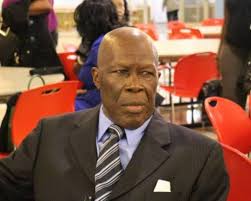
By Taiwo Adisa
One of the major actors in the June 12, 1993 election debacle, Professor Humphrey Nwosu, breathed his last on Thursday, October 24, in the United States of America, at the age of 83. He had served as the Chairman of the National Election Commission (NEC), now the Independent National Electoral Commission, between 1989 and 1993, his tenure terminated by the fiendish exchanges occasioned by the savage annulment of the election.
Professor Nwosu was a Professor of Political Science who was named the Chairman of the electoral body by former military leader General Ibrahim Babangida in circumstances similar to how former President Goodluck Jonathan named Professor Attahiru Jega into that same position on June 8, 2020.
Both IBB and Jonathan had previously not met with the men they named as the nation’s chief electoral officers. Nwosu served creditably, even though the military denied the nation the fruits of his service as NEC Chairman.
While in office, he was the executor of Babangida’s transition as it galloped from one bumpy end to another. The man was, however, determined to get something out of the assignment. He showed he was in office and in power in his determination to improvise a model into practical life mechanically.
He left no one in doubt that he was out to give back to the country of his birth from the pool of the political theories he had read and taught in the university. Working in the shadows of Babangida’s Political Bureau Report, which was the foundation of the regime’s unwinding transition programme, Nwosu applied his theoretical craft and modelled the Option A4 (Open Ballot System) and the Modified Open Ballot System.
With IBB’s regime having adopted a two-party system, it seemed a perfect fit for the elections and the results turned in at different intervals to the satisfaction of Nigerians. There was the local government election, state elections and then the National Assembly elections. At a stage, the nation was treated to a Diarchy, with a full-fledged National Assembly making laws for a military ruler. Everything looked set for the June 12, 1993, presidential poll, which was to crown a tedious transition programme that started in 1986.
Nwosu was upbeat that the law was on his side, despite the serpentine spirit donned by the infamous Association for Better Nigeria (ABN) of Senator Arthur Nzeribe and Abimbola Davies, lurking. Nwosu was prevented from announcing the presidential election in full, as the regime cited a midnight judgment secured by the ABN. Even at that, the whole nation was merely awaiting the official confirmation of what they already knew, Chief MKO Abiola, candidate of the Social Democratic Party (SDP) had defeated Alhaji Bashir Tofa of the National Republican Convention (NRC).
It was an election globally confirmed as the freest and fairest in the nation’s history but the Babangida junta denied Nwosu the accolades, it denied Chief Abiola the chance to savour his victory and drew back the hands of Nigeria’s democratic clock.
For years, Nwosu kept mute on the circumstances that surrounded the testy period of the annulled election but in June 2008, he spoke to TheNEWS magazine, just ahead of the public presentation of the book that chronicled his public service experience. He first told the magazine that he had a sense of history when the appointment fell on his lap and that he believed there was a need to produce a practical situation from the theories.
He said: “I felt I had to do my best to this nation to also convince the person who appointed me that I could do my best for Nigeria and satisfy my conscience and my constituency-the university community. You know, when members of the academic community are given a public assignment; people say they’re just talking theory and that you have to blend theory with practice.”
He described the June 12, 1993 election as a special moment in the nation’s history and said: “So you’ll find that June 12 as a movement was indeed the day Nigerians opted for a democratic political order. They didn’t care, and the parties cut across ethnic, state, and regional boundaries. And Nigerians were highly mobilized and they expressed their choices freely without interference. There was no stuffing of ballot boxes, and there was no manipulation, intimidation, or harassment. Nigerians came out as a body, just like people in the United States and Britain, and voted freely. No intimidation, no one lost his life anywhere, it was God-ordained.”
Indeed, the annulment of the election, which was announced by Babangida on June 23, 1993, was like a prison sentence for Nigeria’s democratic process. Alarm bells rang across the nation. There were threats of war. Many died. Many got maimed and countless went missing as protests engulfed the nation. The nation was on tenterhooks for years. With Nigeria on the brink of disintegration, power changed hands quickly.
General Sani Abacha replaced the Ernest Shonekan contraption left by a “stepping aside” General Babangida. He initially dangled the carrot before the political class but later unleashed his iron-fisted fangs. He battled the pro-democracy agitators with crude despotism. MKO Abiola, who had declared himself president, was arrested, and his wife Kudirat was killed, just as many top pro-democracy campaigners.
No doubt, the aftermath of the annulled June 12 was a broken regime and a fractured nation, culminating in the birth of a wobbling democracy. Democracy in its true form, having been dented with hefty blows in the series of leadership change from Babangida to Shonekan to Sani Abacha, whose death in 1998 paved the way for General Abdulsalami Abubakar to midwife the current Republic within eleven months.
As stated by Nwosu above, most of the kudos for the turnout of the June 12 election were largely due to his modelling efforts. He fashioned out Option A4, which ushered in the freest poll in the annals of Nigeria’s elections. In the interview published by The NEWS, Nwosu justified the decision by the Babangida administration to adopt a two-party structure and declared that a multi-party system would not yield the desired democratic objectives. He said that mushroom political parties cannot defend democracy as they would not be able to muster the structure across the country.
With what we have seen in recent years, Nwosu was right. Though the late Chief Gani Fawehinmi, SAN, had fought for the democratisation of the political party registration process, the fact remains that the multiplicity of parties may not necessarily serve the democratic cause. These days, many political parties are there for political jobs. They either withdraw in favour of the highest bidder a few days before the election, or they are the first to address the media to endorse the outcome of elections, all for a fee.
Incidentally, Prof Nwosu had recognised such shenanigans long before his demise and had equally recommended a revisit of his electoral models. He told TheNEWS: “I feel we should revisit the electoral reforms, modified open ballot system and option A4. We should go back to the two-party structure. We may even allow a third party for those who feel they cannot be accommodated in the two.
You could see in the days of SDP and NRC that you can have integrated parties that look to value consensus, parties that raise national consciousness, parties that have spread all over the country, and parties that cut across ethnic, and religious groupings. I am seriously addressing this issue because I believe in it, and I think that some Nigerians believe in it.”
In this era of troubled elections, I believe that Nwosu’s models should be revisited. His Option A4 should serve as our electoral compass going forward. The modified system and all that Nwosu brought to the table needed to be re-examined by the National Assembly, such that they could give the nation an electoral law that would work for all.
OPINION
Mr President, a Board for NCC

By Okoh Aihe
On this very day, I want to acknowledge with utmost respect that there could be so many items on President Tinubu’s plate, so I do not, by any means, want to add anything to that mix which could give even an elephant a headache. Uneasy lies the head that wears a crown, they say.
Looking around the nation daily, the President will have enough worries to last a lifetime, any addition could fall below acceptable standards of patriotism, albeit outright wickedness.My self-appointed mission this Wednesday is to help alleviate the President’s headache by pointing to a task that needs to be sorted urgently in order to help realise his administration’s growth projections, just like actually adding to the items on the plate, with a caveat: the newest item needs accelerated treatment.
If words haven’t reached the President yet, I have taken it upon myself to notify him that the Nigerian Communications Commission (NCC) needs his accelerated attention in order to save the entire telecommunications industry, not only the regulator this time, from looming disaster. The regulator is in dire straits and needs urgent constitution of its Board so as to steer it back to the path of reason and performance.
The Nigerian Communications Act 2003 credits the President with the responsibility to appoint a Board for the NCC. This is stated in Section 5 of the Act which says that all the 9 Commissioners shall be appointed by the President of the Federal Republic of Nigeria. The Board shall consist of a Chairman, a chief executive who shall also be the Executive Vice Chairman, 2 Executive Commissioners, and 5 non-executive Commissioners.
The Act further states that Notwithstanding any other provision of this Act, the President shall ensure at all times that there is a duly constituted Board of Commissioners and that there are a minimum of 6 serving Commissioners on the Board at any and all times, made up of – the Chief Executive; 2 Executive Commissioners; and 3 non-executive Commissioners.
In addition, the Commissioners shall be persons of recognised standing, qualification and experience in one or more of the following fields – finance or accounting; law; consumer affairs, telecommunications engineering; information technology, engineering generally; economics; and public administration. They shall be drawn from the 6 geo-political zones subject to the confirmation by the Senate.
Flowing from the foregoing, it is safe to observe that the NCC has not had a Board for over a year even though the Act says that “the Board shall have capacity to make standing orders for the regulator of its proceedings and meetings however, and acts of the Board shall be deemed to be acts of the Commission.”
The Board gives the general direction for the Commission and provides it with a buffer or safety net from the predatory capacity of higher authorities. Unfortunately and quite ironically, the absence of the Board denies the Commission of the variegated experiences of industry elders, scuppers its capacity for high-wired relationships and even the capacity to perform its basic functions. This has not placed the NCC in a good position, leading to aggravated hopelessness and tension within the system. For a regulator, this is almost a death call and gives reason for serious worry.
So, for the NCC, the Board is everything. Under Engr Ernest Ndukwe who initiated the rhythm for telecommunications growth in Nigeria, the Board was headed by former civil servant and compact genie, Alhaji Ahmed Joda. He could walk in any time to see President Olusegun Obasanjo in the Villa and make his demands. In the days of Dr Eugene Juwah, who answered the final call in October 2021, the Board was headed by Mr Peter Egbe Igho, a former Permanent Secretary, demure but also had his ways. During the time of Prof. Umar Garba Danbatta, the Board was headed by Chief Olabiyi Durojaiye, venerated lawyer and former Central Bank Director, a pro-democracy activist and a Senator of the Federal Republic of Nigeria.
At his age, he was enthusiastic about the Commission but was harassed out of office in contravention with the provisions of the Act by former Minister of Communications and Digital Economy, Dr Isa Pantami, and his collaborators, who immediately activated his gameplan to appoint his lackey, Prof Adeolu Akande, who was NITDA Chairman at the time Pantami was Director General.
Immediately, the NCC suffered jeopardy. The Board adorned the costumes of a puppet and couldn’t even take simple decisions without the imprimatur of the Minister. Even staff promotions that was the prerogative of the Board was remotely superintended. All the gains made in over two decades were ruined by the ignorance and presumptions of a Board that failed to reconcile its activities with the provisions of the Act and the aspirations of the workforce. It was an apocalypse for the NCC which has not been able to fight its way out of such misbegotten fate.
A Director, who didn’t want to be named, summarised the situation as follows: “The last Board was more of procurement officers, no experience. Their meetings were about contracts. The only good Board under the last administration ended with the sacking of Senator Durojaiye.”
Mr President, the NCC needs a Board. Urgently. Somebody around you could say, you appointed two Executive Commissioners in February this year, in the persons of Engr Abraham Oshadami, Technical Services and Rimini Makama for Stakeholder Management. Without revisiting the incongruity of the appointment of the latter, let me point out that the appointment of two Executive Commissioners with the Executive Vice Chairman (EVC), Dr Aminu Maida, only provides an Executive Management and not a Board.
The Board always reserved a place for experience and institutional knowledge or memory, which are in deficit at the moment. Only Oshadami offers that capacity and the other two were appointed from ancillary industries sans core experience in telecoms operations.
In this column this writer wrote on February 28, “Maska, who yielded grounds for Oshadami to step in, was homegrown, just like his successor. They epitomise the lore of the regulatory institution which often provides the compass for the regulator to steer the industry. After a troubling period of regulatory capture under the Muhammadu Buhari administration, the regulator needs a genuine reload for the challenges and excitement ahead.”
At the moment, there is no reload at NCC. Instead, the stories we hear from that place are intemperate languages, scheduling of appointments to see a coworker in the form of an executive commissioner, or even a general disdain for the tradition of the institution which thrived on love and great interpersonal relationships. All the good memories at the institution have nearly been wiped by some level of cockiness and uncouth behaviours that make the office environment toxic.
The President must act fast to stem the drift at the NCC which at the moment is not in a good place. Apart from the internal rancour and apprehension, this writer gathered that the regulator has lost so much steam and respect that some operators are resorting to higher authorities to meet their regulatory needs. This never happened at NCC and doesn’t portend good for the Commission. It doesn’t also portend good for a nation that once produced one of the best regulatory agencies in the world.
Apart from the most recent Board which nearly damaged the Commission, previous Boards were resolute in tackling the challenges of the regulator. The times demand that the President constitutes a Board peopled with men and women of sterner stuffs, people cast in the similitude of Joda and Duroaiye (both of them have returned to their Maker with good reports) who could look at the President in the face and make demands that can reposition the telecommunications industry or argue about funds that must be retained by the regulator. Joda did that always.
And there are so many things the Board should be talking about. For instance, this writer is aware that there is a lot of disgruntlement about the 50 percent which the Government collects from the Annual Operating Levy (AOL) which operators pay to the Commission. From the balance, the Commission, a source informed, will still have to fund the Universal Service Provision Fund (USPF), Nigeria Data Protection Commission (NDPC) and even some of its own activities. This development has left the NCC in rags and in tatters and has rendered the agency incapable of carrying out even some key functions like monitoring – to ensure operators are not carving out little empires for themselves outside the law.
Mr President, the NCC needs a strong Board to tackle its internal crisis and manage other stakeholder expectations, and also be able to confront you with challenges of the industry where exigent interventions are required of your esteemed office.
The importance of the industry rests on the evaluation of one Director who reasoned that “Telecom is the platform on which other organisations run. Nobody wants to watch that industry die.”

